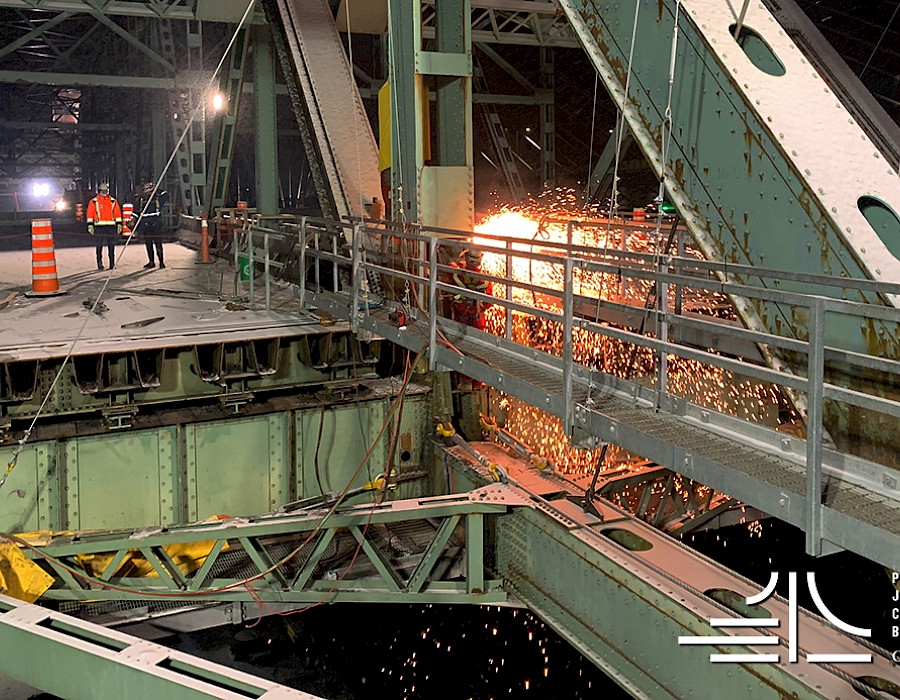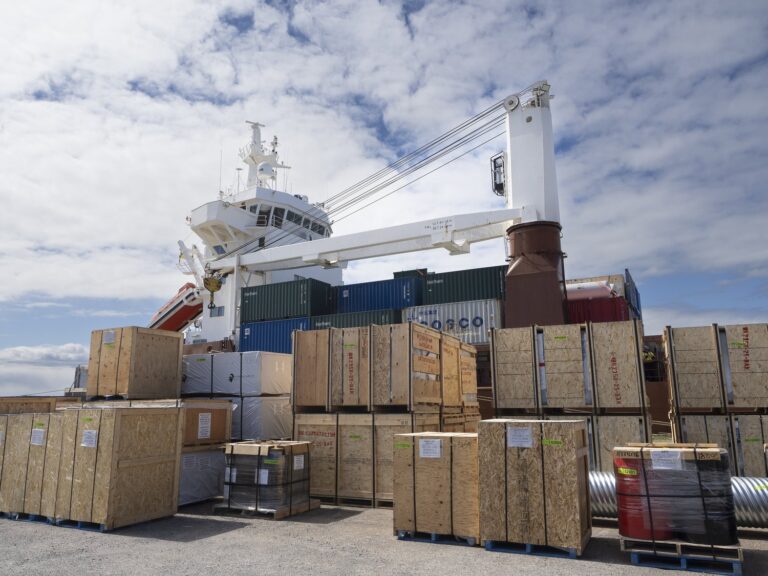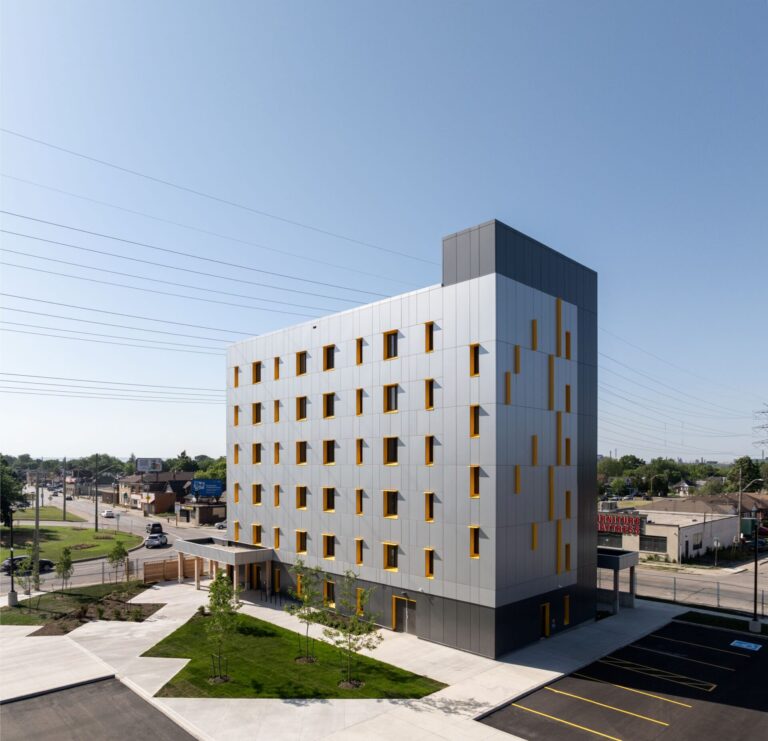The Jacques Cartier and Champlain Bridges Incorporated (JCCBI) and Nouvel Horizon Saint-Laurent G.P. (NHSL) started a major step in the deconstruction of the original Champlain Bridge with the dismantling of the bridge’s steel structure. This operation began with the removal of the main steel span over the St. Lawrence River.
This large, suspended span, which had been part of the bridge for over 60 years, was detached from the bridge structure during the night. This morning the enormous 117.5-m long and 2,200-tonne component began its slow descent, which could take 6 to 24 hours to complete. With strand jacks installed on anchor spans on each side, the span will be lowered 33 metres onto an assembly of two barges in the middle of the Seaway. Note that this step can only be performed at this time of year when there are no commercial shipping activities in the Seaway. The operation also requires optimal weather conditions as well as coordinated efforts between about 50 people.
“The dismantling of the steel structure that crowned the original Champlain Bridge for the last 60 years marks a significant milestone in this major deconstruction project,” said Dominic LeBlanc, Minister of Intergovernmental Affairs, Infrastructure and Communities. “This operation demonstrates JCCBI’s and their partner’s innovation and regard for the environment, as does their recycling program, which will give a second life to the bridge materials. Congratulations to all those involved in this project for the past 18 months. They are executing a major operation with respect for the environment and the residents living nearby.”
Before lowering the main span, work to reinforce the steel structure was done to maintain the integrity of the anchor spans and the long span during the descent. The teams also had to install special-purpose bearings before taking down the span.
“The original Champlain Bridge has slowly disappeared from the Montreal landscape over the past 18 months, and today the heart of the bridge has been detached from its structure,” said Sandra Martel, Chief Executive Officer of JCCBI. “The deconstruction process has posed many technical challenges, including the complex and delicate task of lowering the main span. The teams at JCCBI and NHSL have all done excellent work not only at this stage but throughout this major project to minimize the impacts on the public and protect the environment while maintaining high health and safety standards for workers.”
Before lowering the main span, work to reinforce the steel structure was done to maintain the integrity of the anchor spans and the long span during the descent. The teams also had to install special-purpose bearings before taking down the span.
“Nearly two years of design, coordination and detailed planning have gone into today’s lowering of the main span, which is a unique operation in Canada,” said Fabrice Guedon, Project Director at NHSL. “Although this type of work is carried out occasionally around the world, it has never been done on this scale in Canada, especially in winter conditions and under the operational constraints of this project. I want to congratulate our teams for their innovative work, which has been directly and indirectly supported by our local and international suppliers and stakeholders.”
The barge assembly holding the large span will slowly be moved to the South Shore and secured on the Brossard side, where the span will be dismantled in the spring.
In the coming months, teams will take apart the cantilever sections that were attached to the main span and dismantle the anchor spans using cranes on the jetties and dike. These sections will be deconstructed chord by chord and then either recycled or reused.
Deconstruction work completed to date
After 18 months of construction, the Île des Sœurs abutment, 26 spans, 14 piers and 4 footings have been deconstructed, bringing the deconstruction project to 50 per cent completion, which is in keeping with the original work schedule.
Featured image: (JCCBI)











